Seasonality in cholera dynamics: a rainfall-driven model explains the wide range of patterns in endemic areas

Seasonal patterns in cholera dynamics exhibit pronounced variability across geographical regions, showing single or multiple peaks at different times of the year. Although multiple hypotheses related to local climate variables have been proposed, an understanding of this seasonal variation remains incomplete. The historical Bengal region, which encompasses the full range of cholera’s seasonality observed worldwide, provides a unique opportunity to gain insights on underlying environmental drivers. Here, we propose a mechanistic, rainfall-temperature driven, stochastic epidemiological model which explicitly accounts for the fluctuations of the aquatic reservoir, and analyze with this model the historical dataset of cholera mortality in the Bengal region. Parameters are inferred with a recently developed sequential Monte Carlo method for likelihood maximization in partially observed Markov processes. Results indicate that the hydrological regime is a major driver of the seasonal dynamics of cholera. Rainfall tends to buffer the propagation of the disease in wet regions due to the longer residence times of water in the environment and an associated dilution effect, whereas it enhances cholera resurgence in dry regions. Moreover, the dynamics of the environmental water reservoir determine whether the seasonality is unimodal or bimodal, as well as its phase relative to the monsoon. Thus, the full range of seasonal patterns can be explained based solely on the local variation of rainfall and temperature. Given the close connection between cholera seasonality and environmental conditions, a deeper understanding of the underlying mechanisms would allow the better management and planning of public health policies with respect to climate variability and climate change.
